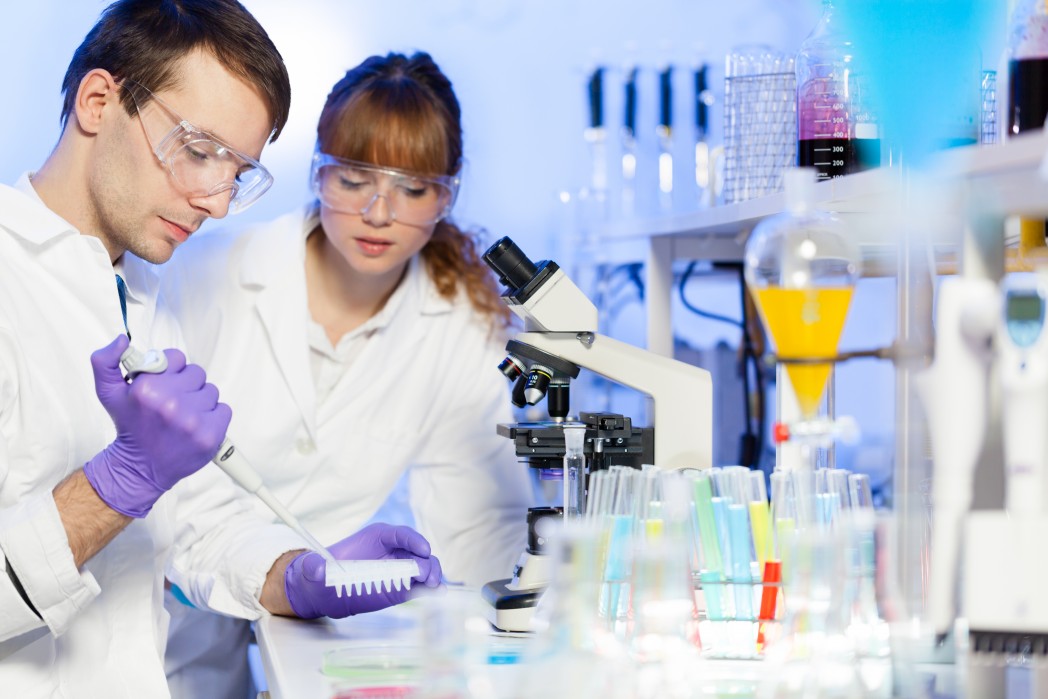Biogen, ALS Association and Columbia University Medical Center Partner to Expand Genetic Resources and Research

A new research collaboration was recently formed between Biogen Idec, the ALS Association and Columbia University Medical Center (CUMC) to study the differences and similarities in ALS’ disease progress and how an patient’s genes can influence its clinical manifestations. The joint research initiative, titled, “Genomic Translation for ALS Clinical care” (GTAC), will entail combining cutting edge genetic sequencing and comprehensive clinical phenotyping in 1,500 patients with ALS. The study aims to yield findings that can serve as a basis for new precision medicine and individualized treatment options for ALS.
“We want to bring genomics right to the point of care in ALS where instead of focusing on retrospective DNA samples with limited clinical information, we focus on patients who are under active clinical management,” said ALS Association Chief Scientist Lucie Bruijn, Ph.D., M.B.A. “By focusing on patients seen by participating ALS clinics, this project will allow investigators to ask how different genetic causes of ALS translate into different clinical consequences.”
The study intends to facilitate a nationwide effort to secure the genomic characterization of all patients diagnosed with the disease. “We know that ALS is not just one disease,” explained Tim Harris, senior vice president, Precision Medicine at Biogen. “This study will help in developing a detailed understanding of how different genes contribute to different clinical forms of ALS. This will in turn help us design better, more focused clinical trials for the development of more effective treatments. This kind of ‘precision medicine,’ in which a treatment is tailored to a person’s unique genetic make-up, is already being used in the cancer field. It is an approach we feel is ready for ALS too.”
“Until recently, most large-scale genomics studies used archived DNA samples, so the findings had minimal impact on patient care,” said David B. Goldstein, Ph.D., professor of genetics and development and director of the Institute for Genomic Medicine at CUMC. “This project reflects our commitment to using ALS genomic studies to benefit patients directly through diagnoses and to set the stage for genetically stratified clinical trials.”
“This project will provide a clinical deliverable to the 1500 patients that participate in the study. We will use our extensive database of ALS genomes and exomes to carefully identify definitive genetic risk factors for ALS and these risk factors will be communicated back to participating clinics. The database we create will allow for an unprecedented investigation of the clinical correlates of the genetic causes of ALS.” added Dr. Matthew Harms, M.D., who will lead the project and be joining CUMC in the fall as an assistant professor of neurology.
To help ensure the fulfilment of these large-scale goals, patients’ blood cells will be stored at the Induced Pluripotent Stem Cell (iPSC) Core, a cell bank backed by the ALS Association housed in the Cedars-Sinai Board of Governors Regenerative Medicine Institute.
“The ability to create patient iPS cells from such a genetically well-annotated ALS blood repository will allow us to model causes of motor neuron degeneration in ALS at a scale that has never been possible,” said Dhruv Sareen, Ph.D., who leads the Cedars-Sinai iPSC Core.
Resulting information from these studies will be pooled and sifted through via the NeuroBank system at the Massachusetts General Hospital, with Cedars-Sinai as the location for cell line development.
At present, the participating clinical sites in this effort include the Cedars-Sinai Board of Governors Regenerative Medicine Institute, Columbia University Medical Center, Duke Medical Center, Houston Methodist, the Scotland ALS clinic network, University of Minnesota and Hennepin County Medical Center, University of Utah, University of Washington, and Washington University in St. Louis.






